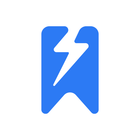
Unmark
Unmark is an open-source web-based bookmark management tool designed to help users organize and rediscover their important online content without the clutter of traditional bookmarking methods. It focuses on a minimalist, task-oriented approach.
About Unmark
Unmark reimagines bookmarking as a workflow, not just a list. Instead of creating an ever-growing collection of links, Unmark encourages users to process their saved content. Think of it as a 'to-do' list for your web reading.
Key functionalities include:
- Task-Oriented Bookmarking: Save links with the intention of interacting with them later. Mark bookmarks as 'done' once processed, keeping your list focused.
- Enhanced Organization: Utilize flexible tagging and category filters to slice and dice your saved content, making it easy to find specific articles or resources.
- Full-Text Search: Quickly locate bookmarks by searching not just titles and tags, but the entire content of the saved webpage.
- Clean Reading View: An adapted article view removes distractions, making reading saved articles more pleasant.
- Cross-Platform Accessibility: Access Unmark via its web interface, mobile-friendly design, and browser extensions for Chrome and Firefox.
- Community-Driven: As an open-source project, Unmark benefits from community contributions and transparency.
Unmark moves beyond simple saving, aiming to be a tool that helps you action and engage with the web content you deem important, ultimately reducing digital clutter and improving knowledge management.
Pros & Cons
Pros
- Innovative 'to-do' list approach to managing bookmarks
- Clean and minimalist user interface
- Effective full-text search capability
- Distraction-free adapted article view
- Open-source and allows for self-hosting
Cons
- Requires a shift in user habits compared to traditional bookmarking
- Relies heavily on manual tagging for organization
- No dedicated native mobile applications
- Feature development pace may vary as an open-source project
What Makes Unmark Stand Out
To-Do List for Bookmarks
Unmark treats bookmarks as tasks to be completed, helping users manage and process saved content rather than just accumulate it.
Open Source and Community Driven
The project is open-source, promoting transparency and allowing for community contributions and self-hosting.
Focus on Processing, Not Just Saving
The system encourages engagement with saved content by providing tools to mark items as done, fostering a more active use of bookmarks.
Features & Capabilities
10 featuresExpert Review
Unmark is a bookmark management tool that takes a distinctly different approach from traditional bookmarking services. Instead of simply archiving links, Unmark positions itself as a 'to-do' list for web content. This paradigm shift is central to its design and functionality.
The core concept revolves around saving links with the intent of returning to them later for reading, referencing, or other actions. Once a link has been 'processed' – meaning the user has engaged with it in the desired way – it can be marked as 'done'. This active management helps prevent the common issue of bookmark lists becoming an overwhelming black hole of forgotten links.
User interaction primarily takes place through a clean, minimalist web interface. Adding bookmarks is streamlined, supported by browser extensions for Chrome and Firefox, as well as universal bookmarklets. This multi-platform capture ability ensures that saving content is convenient regardless of the user's browsing environment.
Organization within Unmark is primarily driven by tags. Users can apply one or more tags to each bookmark, creating a flexible system for categorization. These tags are then used in conjunction with category filters to refine the displayed list of bookmarks. While effective, this approach relies heavily on the user's discipline in consistently tagging content. There are no pre-defined folders or hierarchical structures, emphasizing the flat, tag-based organization.
Finding saved content is facilitated by a robust full-text search. This feature is particularly valuable as it searches not just the title or tags, but the entire content of the saved webpage (where applicable). This significantly increases the chances of locating a specific article or piece of information even if the tags or title aren't perfectly recalled.
For reading saved articles, Unmark offers an adapted article view. This mode strips away extraneous elements like ads, sidebars, and navigation, presenting the main content in a clean, readable format. This feature enhances the experience of returning to saved articles and aligns with the tool's focus on processing content.
The open-source nature of Unmark is a notable aspect. It allows for transparency in development and offers the option for users with technical expertise to self-host the application. This appeals to users who prioritize control over their data and prefer community-driven projects over proprietary services.
While the 'to-do' list metaphor is a refreshing take on bookmarking, it might require a shift in user habits. Those accustomed to simply saving links for long-term archiving might find the 'done' concept less intuitive. The reliance on tags for organization, while flexible, also means that discovery largely depends on effective tagging practices.
From a technical standpoint, the web-based nature ensures accessibility from almost any device. The mobile-friendly design allows for core functionality on smartphones and tablets, although dedicated native apps are not available. The project's maturity and ongoing development depend on community involvement due to its open-source status.
In summary, Unmark is a compelling bookmarking tool for users who feel overwhelmed by traditional bookmark lists and want a system that encourages active engagement with saved content. Its task-oriented approach, tag-based organization, and full-text search are strong features. While it may require users to adapt their habits, the potential for better information management and reduced clutter makes it a valuable option, especially for those who appreciate open-source software.










